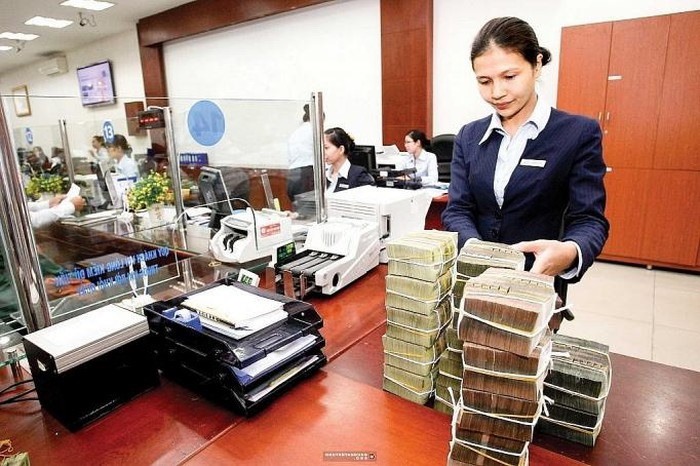 Economy
Economy

The State Bank of Việt Nam (SBV) has urged credit institutions to ensure adequate funds to meet the capital demands of rice exporters for the winter-spring crop this year.
 |
| The banking industry, under the Government’s guidance, has commmitted to offering low-interest loans to enterprises so they can buy, store and export rice. — Photo baomoi.com |
HCM CITY — The State Bank of Việt Nam (SBV) has urged credit institutions to ensure adequate funds to meet the capital demands of rice exporters for the winter-spring crop this year.
Since the Lunar New Year (Tết) holiday, the rice export market has seen prices dropping due to oversupply.
The SBV directed commercial banks to focus on timely lending to enterprises so they can buy rice from farmers.
At a meeting held late last week in Đồng Tháp Province, commercial banks, including Agribank, Vietcombank and Sacombank, committed to providing loans worth trillions of Vietnamese đồng with an interest rate of 6 per cent per year to rice enterprises.
Nghiêm Xuân Thành, chairman of Vietcombank, said the bank committed to provide low-interest loans worth VNĐ9 trillion (US$387.82 million) to rice enterprises that have feasible plans.
Trịnh Ngọc Khánh, chairman of Agribank’s Members’ Council, also committed to ensure sufficient capital for lending.
The banks have committed to creating favourable conditions for individuals and businesses to access capital for production, and the purchase and consumption of rice.
SBV Governor Lê Minh Hưng said the banking sector would strive to meet the needs of farmers and businesses in the production, purchasing, processing and consumption of rice with appropriate interest rates, terms and loan cycles.
Banks have been urged to work closely with enterprises to resolve their capital problems and offer solutions, which could include increasing the loan limit and speeding up disbursement for enterprises so they can quickly purchase paddy.
In addition, the central bank has asked its branches in 13 Mekong Delta provinces to closely follow changes in the paddy market and credit activities in the region to advise provincial people’s committees and the central bank about solutions to boost lending.
Lending to the rice industry and to agricultural and rural development in general is the focus of the banking industry, according to Hưng. The credit balance of the sector accounts for a large proportion of the credit of the entire economy.
Nguyễn Quốc Hùng, director of the Credit Department of SBV, said that, as of the end of last year, the credit balance for agricultural and rural areas nationwide increased by 21.4 per cent compared to the same period in the previous year.
Last year, total outstanding loans of the rice industry reached VNĐ99 trillion, an increase of VNĐ29.8 trillion compared to the end of 2017.
Lê Minh Hoan, secretary of the Đồng Tháp Province’s Party Committee, said it was important to create a longer-term vision for the rice industry, which affects millions of farmers.
The region needs a specific action plan to resolve the problem of “high cost yet poor quality”, he said.
Cooperation among the sectors is needed and cooperative models are a promising solution in restructuring the agricultural sector.
Phạm Thái Bình, director of the Trung An High-Tech Agricultural Joint Stock Company, said that large-scale fields could create value chains between businesses and farmers.
However, the large-scale field model accounts for only about 100,000 hectares out of a total of two million hectares in the region.
Bình has asked the Minister of Agriculture and Rural Development to address any issue related to the sustainable development of the rice industry. — VNS




